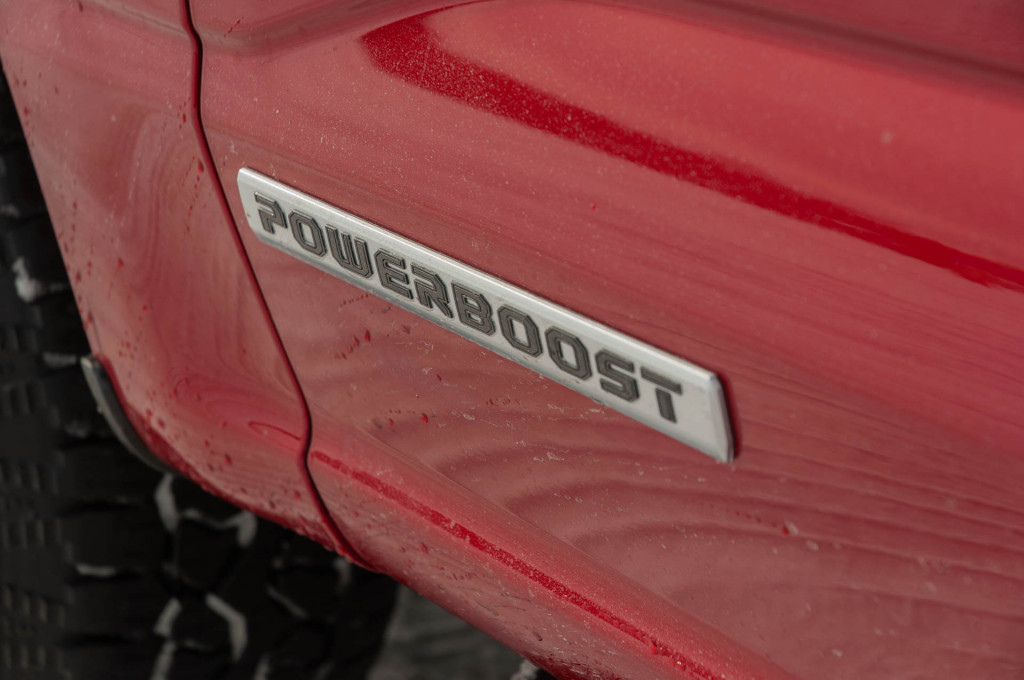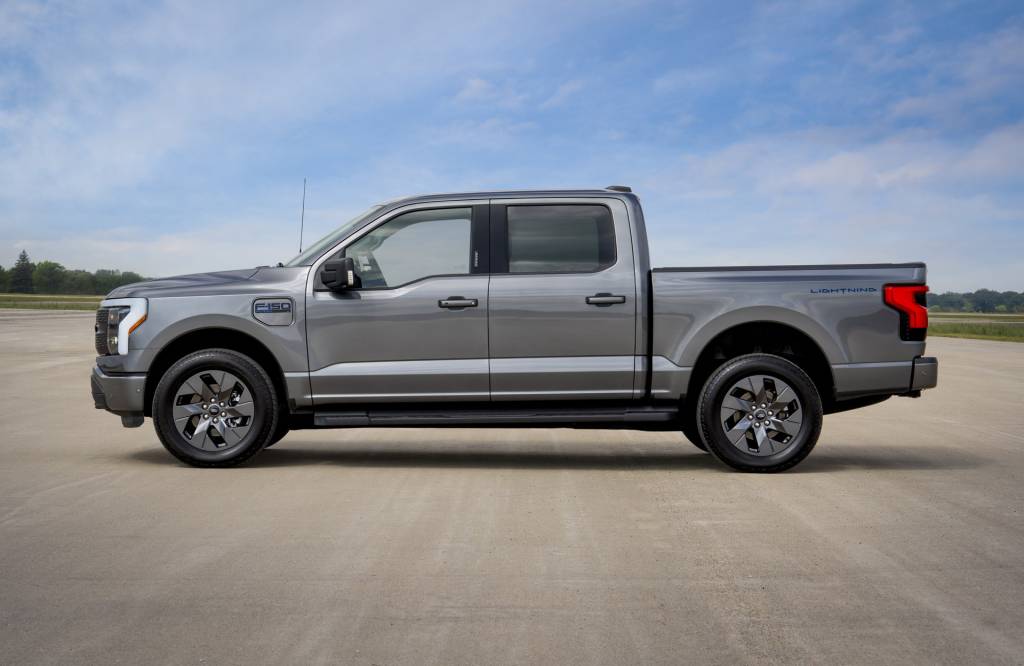

Ford CEO: Hybrids will play “increasingly important role” alongside EVs
In the same quarterly investor call where Ford emphasized a pivot toward more affordable EVs, Ford on Tuesday also suggested that hybrids will remain an important and growing part of its vehicle lineup for many years.
Referring to a “new market reality” with respect to EVs, Ford emphasized that it anticipates aggressive growth on hybrids this year. Ford claims to be third in U.S. hybrid sales, after Toyota and Honda, and it thinks that 25% of nationwide sales of the bestselling F-150 can be of the hybrid, which Ford badges PowerBoost.
“Hybrids will play an increasingly important role in our industry’s transition, and will be here for the long run,” Ford CEO Jim Farley said, noting the regional variations in EV demand and adoption that persist.
Farley pointed to the F-150 lineup, for which it has hybrid, EV, and ICE (non-hybrid) versions.
“In California, our mix was 50% hybrid and EV F-150, and 50% ICE; a thousand miles away in Dallas it was only 15% hybrid and EV, 85% ICE,” Farley said. “You go around the world, you’ll see the same variations.”

2021 Ford F-150 Hybrid
“Do the math” on hybrid ownership cost
Farley explained that hybrids make sense for customers who “do the math very clearly”—the 37-mpg Maverick hybrid, for instance, on mileage and efficiency, and the F-150 hybrid on towing fuel efficiency and its onboard-generator capability.
“Customers are doing the quick showroom math on hybrids, they can quickly evaluate the break-even between ICE and a hybrid on the showroom floor for an F-150,” the CEO said. “They know how much a Honda generator costs versus Pro Power Onboard, and they don’t have to change their behavior.”

2023 Ford F-150 Lightning
“A lot of the operating cost efficiency for an EV for a mainstream customer requires change, like installing a charger at home,” Farley said, also noting that comparing repair costs or fueling costs on the spot is a little more challenging. “The math for a mainstream EV customer is a little bit more opaque than what we see on hybrids.”
Meanwhile, Ford’s margins on hybrids compare to those on ICE vehicles and are much higher than on EVs, the CEO noted—although he made sure to reiterate that for the company, EVs are “inevitable in our eyes, and we have a bright future of EVs.”
F-150 Lightning subsidizes gas versions—and future EVs
Even if the electric vehicles aren’t profitable yet, they’re paying their way back to the company in other ways.
With 30% of the market for the F-150 on the West Coast going to the Ford F-150 Lightning EV version, that’s giving the automaker a feedback loop for engineering and the development of future EVs, according to Ford Model E chief operating officer Marin Gjaja.

2024 Ford F-150 Lightning Flash
“We’re developing these electric powertrains; we’ve got better handle on thermal propagation; and the software and services that these customers demand much more intensely than a typical ICE customer, we’re learning how to deliver those much better, much more efficiently and with higher quality,“ he said.
Additionally, although its Model E EV business has to stand on its own, the EVs are paying back in a way in the regulatory game. As Ford executives also confirmed, Ford can sell about a dozen ICE F-150s or other profitable ICE vehicles for every Lightning it sells.
Add a comment Cancel reply
Related posts


EV Guide: How to Care for Your Electric and Hybrid Car











